To enhance the relationship between 2 universities, Can Tho University (CTU) and Dayeh University (DYU) have collaborated to create a new and first program for the first step of exchange students in 3 weeks under the advisors of Prof. Yi Ching Chen (Dayeh University), Assoc. Prof. Van Pham Dang Tri (Can Tho University), and Ms. Tran Thi Ngoc Bich (Tra Vinh University), as well as the enthusiastic support of the Vietnam Student Union at DYU to help exchanging students spend their most memories at DYU.
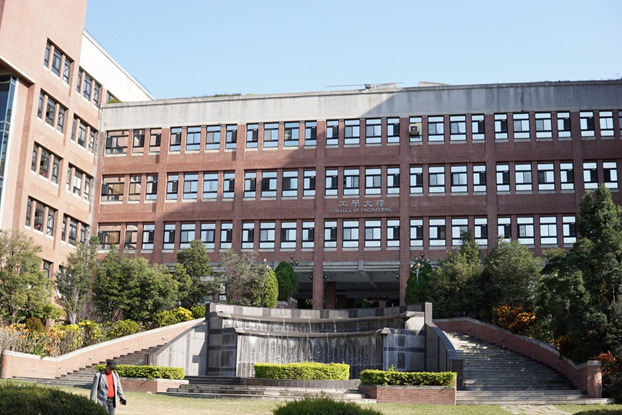
The front side of the College of Engineering, the Dayeh University
I. INTRODUCTION TO DAYEH UNIVERSITY AND TAIWAN
The university was established as the first German-style polytechnic in Taiwan in 1990 by Mr. Song Gen Yeh. This university is the home of over 11,000 local students and around 3,000 international students. DYU has 6 colleges (1) College of Engineering, (2) College of Design and Arts, (3) College of Management, (4) College of Foreign Languages, (5) College of Biotechnology and Bio-resources, and (6) College of Tourism and Hospitality.
The class schedule at DYU usually starts at 9am and ends at 11.00pm. Self-learning is considered to a popular method to apply at the DYU. Self-learning will help students learn and work independently and creatively. The DYU usually organize contests and scientific seminars is promoting students' efforts in learning and open more employment opportunities to enhance professional skills and competitiveness.
YU is of a nice campus service system, especially the bus system in DYU is very convenient for students to travel around colleges, stadium and dormitory. The bus starts a new route at every 15 minutes. Besides, DYU has a bus line (Yuanlin bus) to the county and train station that is really convenient for students come to university and go home every day. To protect and support students as well as well observation, DYU sets up security monitoring system via the cameras which are installed in at different places around the campus. Awareness of the environmental protection of the students is impressive, all garbage is classified before put into the trash. DYU also installs an automatic lighting system to save energy, which automatically operate based on the sensor when someone comes near.
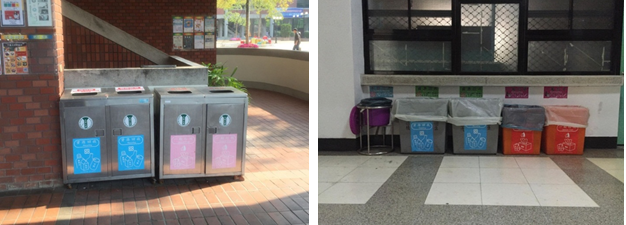
Classified garbage bins placed in different places in DYU
Inside the campus, trees are planted to create a beautiful scenery. The landscape is a good harmony of nature and people.

Campus with more than 82% of green coverage area
1. Scientific research is the first priority
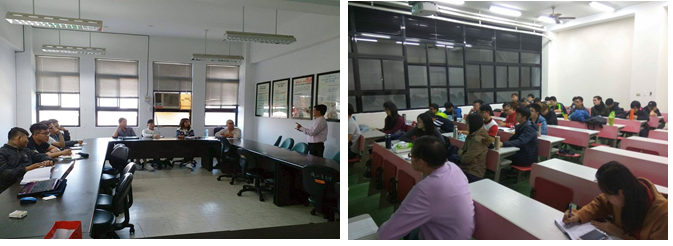
Lessons from Assoc. Prof. Van Pham Dang Tri at the Dayeh University
For many years, the Dayeh University has been awarded the highest award by the Ministry of Science and Technology of Taiwan for its research and the highest investment in research compared to other universities in Taiwan. The College of Engineering and College of Biotechnology and Bio-resources are leading the main road of applied research. The students can work all day with modern equipments to bring the best inventions.
2. Taiwan's country and people
During the time of exchanging program, we had great opportunities to learn about the country and people in Taiwan. We really love and enjoy the no-garbage road, the car moving without using horns, the sense of obeying the traffic rules of the people. The Taiwanese people are very cheerful and friendly for the expatriates and the international students, they are always willing to share their precious life experiences and support others. It is also one of the precious traditions of this beautiful country.
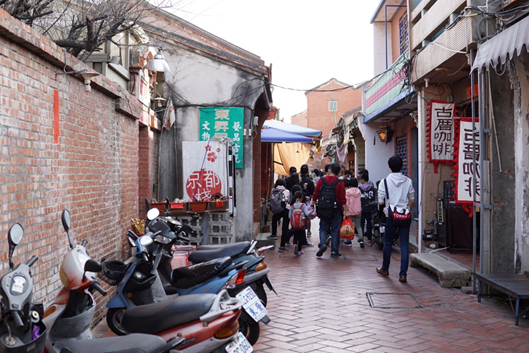
A corner of the street in the LuKang Township
Taiwan is a beautiful and peaceful country, we visited some of the most famous places such as Changhua, Sun Moon Lake, LuKang, etc. and each place has its own beauty. Also, the spiritual life is always associated with the Taiwanese, which has been preserved for thousands of years and is considered as a cultural heritage.
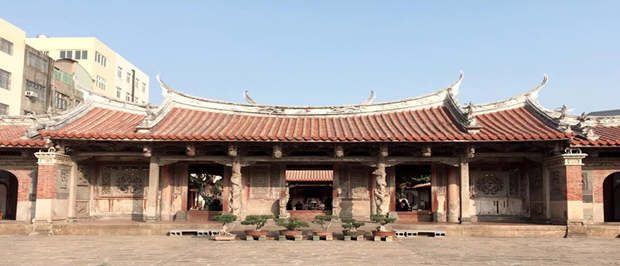
LongShan, the oldest temple of Taiwan at the Lukang Township
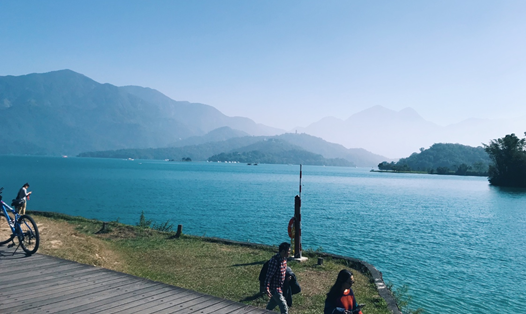
The Sun Moon lake of 748 ,eter above mean sea level
3. Efficient use of natural resources towards clean and modern agriculture
Taiwan is an island nation with mostly mountainous terrain, limit in natural resources, especially water. However, they use this rare resource in a very reasonable and economical way and bring economic efficiency and environmental friendliness. In Taiwan, 32% of groundwater in Taiwan is used for many purposes such as domestic, irrigation, and industry, etc. so they have many policies to control the use of resources. Each well has permits, codes, and is positioned by professional GIS system. Also, they use water meters to collect natural resources fee.
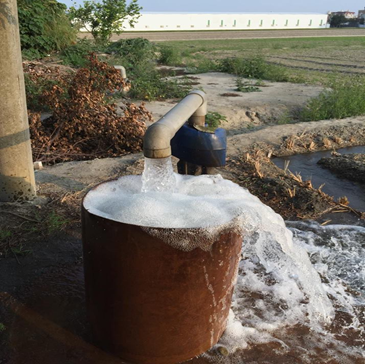
An active well for irrigating the field
Taiwan's agriculture has been applying many scientific and technical advances for sustainable use of natural resources. Surprisingly, the process of wastewater and water supply for agriculture is in the same system. After fieldtrips to learn about irrigation system, we recognize that in each household, factory, and industrial park has a waste water treatment system before discharging into the sewerage system. In addition, they have always applied scientific and technical advances such as water-saving systems, hydroponic systems, climate-weather sensors, intelligent lighting systems, quality seeds and high productivity, etc. All of these have shown that a country that is poor in natural resources but still has the means to develop its agriculture under a stable and sustainable management system.
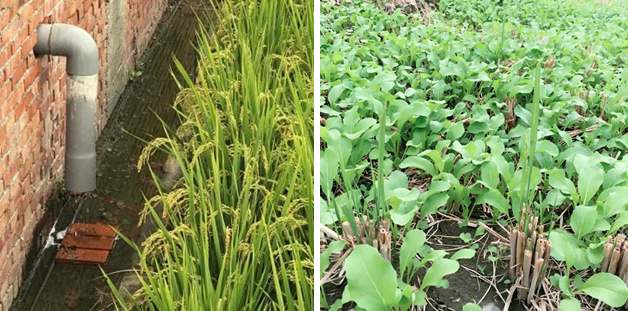
Domestic wastewater with an available treatment system irrigated directly into a field
II. THE EXPERIENCE AFTER THE TRIP
1. Well preparation
Even though we were preparing foreign languages before going to Taiwan, there are still some barriers in communication due to differences in language. Foreign language proficiency, especially in English, is necessary, as well as the need to learn more about native language, which will make it easier for you to study. Besides, Vietnam is a country with relatively high heat. Therefore, during the time in Taiwan we had spent the remarkable weather period from respiratory and cold, due to the difference in temperature. In addition, we also had some minor problems with the internet and dormitory life, but all were resolved quickly thanks to the help of other students in the dorm. In general, these difficulties will help improve life skills, language skill so that adapt to a new learning and living environment if we have opportunities to study abroad later.
2. Requests to participate
All of you can participate but if you have supports of the school such as scholarships, the introduction of teachers, have passion and participate in scientific research and some knowledge of English language. Your chances will be higher and your trip will be more successful.
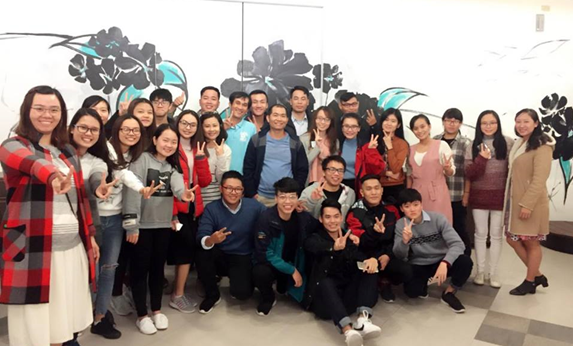
Meeting with the Vietnamese Student Union at the Dayeh University
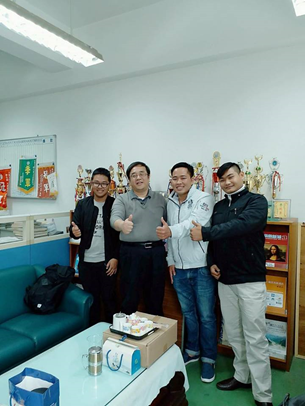
The team and Prof. YiChing Cheng
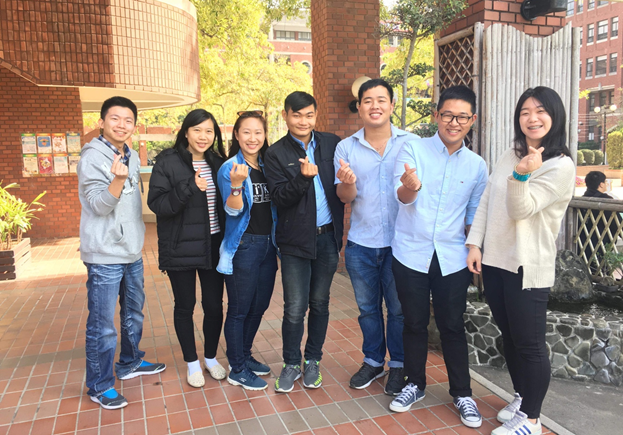
The team and staffs of the Foreign Affairs Unit at the Dayeh University
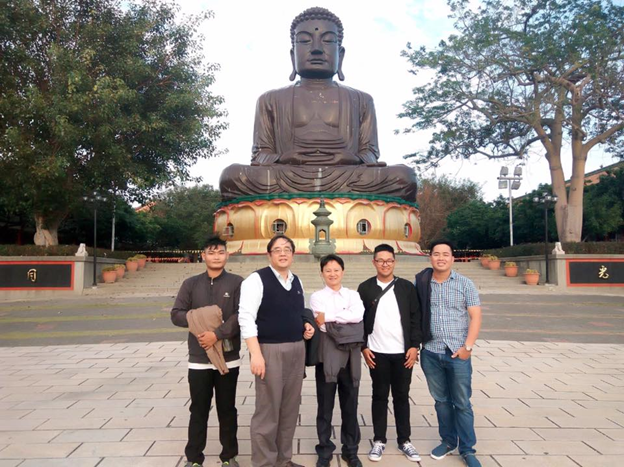
At the National Changhua Living Art Center with Prof. YiChing Chen and Assoc. Prof. Van Pham Dang Tri
3. New lessons
Throughout the trip, we have learned many lessons such as improving communication skills, especially using English in practical communication. The trip also helped us to improve our ability to work in groups, to understand the communication and learning methods of international students. In addition, we also learned more about the country, people and culture of Taiwan, opening up opportunities to study and work in Taiwan later. We also learned more specialized knowledge, especially on the management and sustainable use of water resources in Taiwan, and can develop and apply them to Vietnam.
4. Acknowledgement
Thanks to Can Tho University and Dayeh University for the opportunity to exchange learning at Dayeh University.
Special thanks to Prof. YiChing Chen, Assoc. Prof. Van Pham Dang Tri, Ms. Tran Thi Ngoc Bich and Ms. Tran Phuong Thao, as well as the Vietnamese Student Union at Dayeh University, who have created the best conditions for us to study in Taiwan. Hope that other CTU students will also have opportunities to experience in DYU and Taiwan in the future.
Thank you!
III. STUDENTS
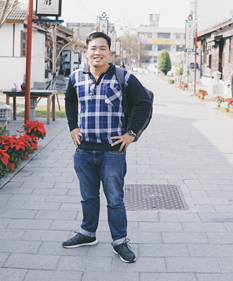 |
NGUYEN THANH QUAN Water Resources Engineering (Course 41), Can Tho University |
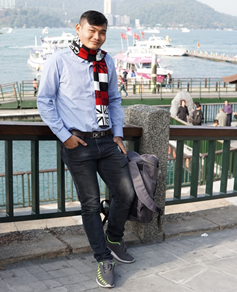 |
NGUYEN DUC TAI Water Resources Engineering (Course 41), Can Tho University |
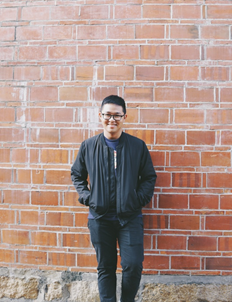 |
NGUYEN QUOC CUONG Environment and Natural Resources Management (Course 41), Can Tho University |
- Thông báo số 2 Hội thảo khoa học về lĩnh vực “Môi trường, Tài nguyên Thiên nhiên và Biến đổi Khí hậu"

- Thông báo Hội thảo khoa học về lĩnh vực “Môi trường, Tài nguyên Thiên nhiên và Biến đổi Khí hậu”

- Hướng dẫn viết tóm tắt

- Thông báo số 1 Hội thảo "Công nghệ số trong khai thác, sử dụng và quản lý tài nguyên đất đai theo hướng phát triển bền vững".
- Hội thảo khoa học với chủ đề "Cách mạng công nghiệp 4.0 trong Nông nghiệp và Quản lý khai thác tài nguyên đất đai".
- Hội thảo lần thứ 42 về viễn thám khu vực Châu Á "ACRS2021"
- Hội thảo "Môi trường, Tài nguyên thiên nhiên và Biến đổi khí hậu"
- Chương trình hội thảo và tuyển chọn tóm tắt
- Thông báo tổ chức Hội thảo khoa học
- The 11th International Forum on Green Technology and Management (IFGTM 2021) - Green Pathways towards a Sustainable Future.
- The international conference “Multi-Disciplinary Approach in Environment Protection for Sustainable Development” The 2nd announcement
- The international conference “Multi-Disciplinary Approach in Environment Protection for Sustainable Development”
- Format abstract hội thảo.
